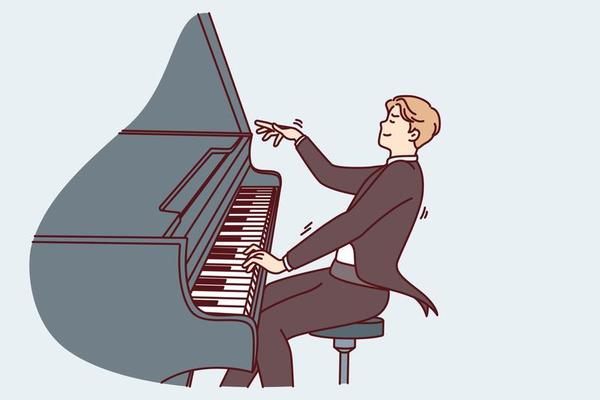There once was a bright piano student, Giorgio, who was invited to play in a piano recital celebrating the genius of Beethoven. Many students and their instructors accepted the same invitation. Giorgio’s instructor showed him three different pieces by Beethoven, but he did not like any of them. Apparently, the other students had been given the more impressive works of Beethoven. He could not go outside of the selection, as all the students would be playing different pieces. Half-heartedly, he settled for “Romance no. 1 in G major.”
His instructor was elated and tried to enthuse Giorgio concerning the prestige of the opportunity. For his part, Giorgio thought that his own compositions were far more invigorating and fresh. Throughout the weeks of preparation, as he sat down to practice “Romance no. 1 in G major,” he would lose focus and begin playing his own favorite score. He just never felt Beethoven in his fingers. The notes on the page never burst from his heart like those he chose for himself.
The night of the recital, all the students, instructors, families and notables gathered in the best concert venue. The program listed Giorgio as third amid twelve students. His selection read, “Romance no. 1 in G major.” His turn came. He made his way from the wings onto the stage. Polite applause followed him to the grand piano where he stopped, bowed and seated himself on the bench. A hush settled over the audience as the first notes sounded. It was not “Romance no. 1 in G major.”
He played his own song in his own way, knowing all the while that it surpassed Beethoven in genius and beauty. Very little applause met him on his return to his seat where fellow students looked at him with disapproving faces. The rest of the recital followed the script, but the whole of it had somehow been sullied. When all of the students came out on stage at the end of the recital to receive the standing ovation, a hand plucked at his elbow, holding him back.
“Giorgio,” his instructor said in a low, sad tone, “let’s stay back a moment. We need to talk. Why did you not play ‘Romance no. 1 in G major?’ You said you would. It was part of the invitation. It was on the program. You embarrassed yourself and me. You did not keep faith with those who welcomed you to the event.” Giorgio fumed. “I’m so sick of ‘Romance no. 1 in G major!’ I played better than all the other students. I courageously expressed myself. My selection was better than any work of Beethoven. How dare you or anyone else here at the recital slight me in the least! If you really love music like I do, you should surround me and support me. You should bring me out for an encore!”
His instructor shook his head slowly and replied softly, “No, Giorgio. You are wrong. I have surrounded you and I am supporting you right here and right now. You have fallen. You have failed. I am helping. I am not slighting you or treating you as someone small. I am holding you fully accountable. You are not better than Beethoven. Even if you were, that does not excuse you playing your own song rather than the one given to you for this recital. Do you truly love music? Do you love it more than me? All you have shown tonight is how much you love yourself.”
I do not know what happened with Giorgio. He may have realized the damage and blindness of his pride. He may have persisted in promoting himself. I do know this, that when we are invited to take part of a group honoring One greater than ourselves, we ought to follow His script rather than our own. None of us are greater than Jesus Christ. If we do not practice love, learning how to love one another, we will inevitably default to just loving ourselves. We will think the church is for us rather than for Jesus, and we will break faith with those who have welcomed us in. Each one of us is called to love as Christ has loved us and given Himself for us. Each one of us is different and have been given different capacities, opportunities and talents. So our loving one another will not all play the exact same notes, but it will be obvious that we are all disciples of the same Savior. A composer’s works clearly sound like his though played by many musicians.
When one of us starts playing his or her own tune, it stands out, but not in a good way. Like Giorgio, this individual may sense that he or she is not being well received. But like Giorgio, this individual has pridefully misapprehended the purpose. The recital was not to showcase Giorgio, but Beethoven. The church is not to showcase any particular member, but Jesus Christ. Like Giorgio’s instructor, so the elders may step in to lovingly surround and support a church member acting unlovingly. We help by holding the church member fully accountable, compelling them to honor Christ by loving others as He has loved us.

